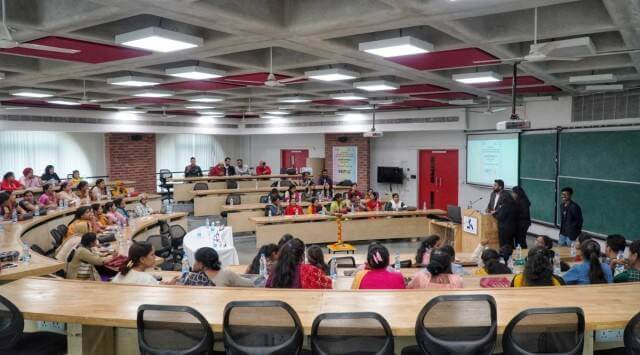Introduction
Graduating with a Bachelor of Technology (BTech) in Engineering is a remarkable achievement in itself. However, for those who may have struggled academically during their undergraduate years and have a low GPA, it can feel like their career opportunities are limited. This is especially true if one aspires to pursue a research-oriented engineering career, which demands a high level of academic excellence and research acumen.
But don’t be disheartened. Even if you have a low GPA, there are still ways to excel in research-oriented engineering careers. In this article, we’ll share some tips and insights from an alumnus of the Indian Institute of Technology (IIT) Bombay, who not only had a low GPA himself but also went on to have a successful career in research-oriented engineering.
Tip #1: Pursue a Master’s Degree
One of the best ways to overcome a low GPA is to pursue a Master’s degree in your field of interest. A Master’s degree program allows you to delve deeper into the subject matter and gain advanced knowledge and skills. It also shows potential employers that you are committed to learning and improving your skills, despite any academic setbacks you may have had in the past.
Additionally, a Master’s degree program often has a research component, which can help you gain valuable research experience and skills. This can be especially beneficial if you are interested in pursuing a career in research-oriented engineering.
Tip #2: Gain Practical Experience
Academic performance is not the only factor that potential employers consider when hiring candidates for research-oriented engineering positions. Practical experience is also highly valued, especially in the field of engineering.
If you have a low GPA, consider gaining practical experience through internships, co-op programs, or entry-level positions. This can help you gain hands-on experience, improve your skills, and build your professional network. It can also demonstrate to potential employers that you have the skills and experience necessary to succeed in a research-oriented engineering career, despite any academic setbacks you may have had.
Tip #3: Build Your Professional Network
Networking is an essential component of any successful career, but it can be particularly valuable for those with a low GPA. Building a strong professional network can help you learn about job opportunities, gain industry insights, and connect with other professionals in your field.
Consider joining professional organizations, attending industry conferences and events, and connecting with alumni from your alma mater. You can also leverage social media platforms like LinkedIn to connect with other professionals and stay up-to-date on industry news and trends.
Tip #4: Highlight Your Strengths
If you have a low GPA, it can be tempting to focus on your weaknesses and downplay your strengths. However, this is not the best approach when it comes to pursuing a research-oriented engineering career.
Instead, focus on highlighting your strengths and achievements. This can include practical experience, research experience, extracurricular activities, and leadership roles. By showcasing your strengths, you can demonstrate to potential employers that you have the skills and experience necessary to excel in a research-oriented engineering career, despite any academic setbacks you may have had.
Conclusion
Pursuing a research-oriented engineering career can be challenging, especially if you have a low GPA. However, it is not impossible. By focusing on gaining practical experience, pursuing advanced education, building a professional network, and highlighting your strengths, you can overcome a low GPA and excel in the field.
Remember, your academic performance is just one factor that potential employers consider when evaluating candidates for research-oriented engineering positions. Practical experience, research experience, and other factors can also play a significant role in determining your success in the field.
So don’t let a low GPA hold you back from pursuing your dreams. With hard work, dedication, and a strategic approach, you can overcome any obstacles and achieve your career goals in research-oriented engineering.
FAQ
Q: Can a low GPA prevent me from pursuing a research-oriented engineering career?
A: While a low GPA can make it more challenging to secure a job in the field, it is not necessarily a deal-breaker. Employers also consider practical
experience, research experience, and other factors when evaluating candidates for research-oriented engineering positions. By focusing on gaining practical experience, pursuing advanced education, building a professional network, and highlighting your strengths, you can overcome a low GPA and succeed in the field.
Q: What are some other ways to gain practical experience in engineering?
A: There are several ways to gain practical experience in engineering, including internships, co-op programs, entry-level positions, and volunteering. You can also consider participating in research projects, attending hackathons or other engineering competitions, and working on personal projects that showcase your skills and interests.
Q: How can I build a professional network in engineering?
A: There are several ways to build a professional network in engineering, including joining professional organizations, attending industry events and conferences, connecting with alumni from your alma mater, and leveraging social media platforms like LinkedIn. You can also consider reaching out to professionals in your field and requesting informational interviews to learn more about their experiences and insights.
Read more about: https://ceoindiaweekly.com/cuet-ug-2023-how-to-prepare-for-political-science-through-ncert-books/










